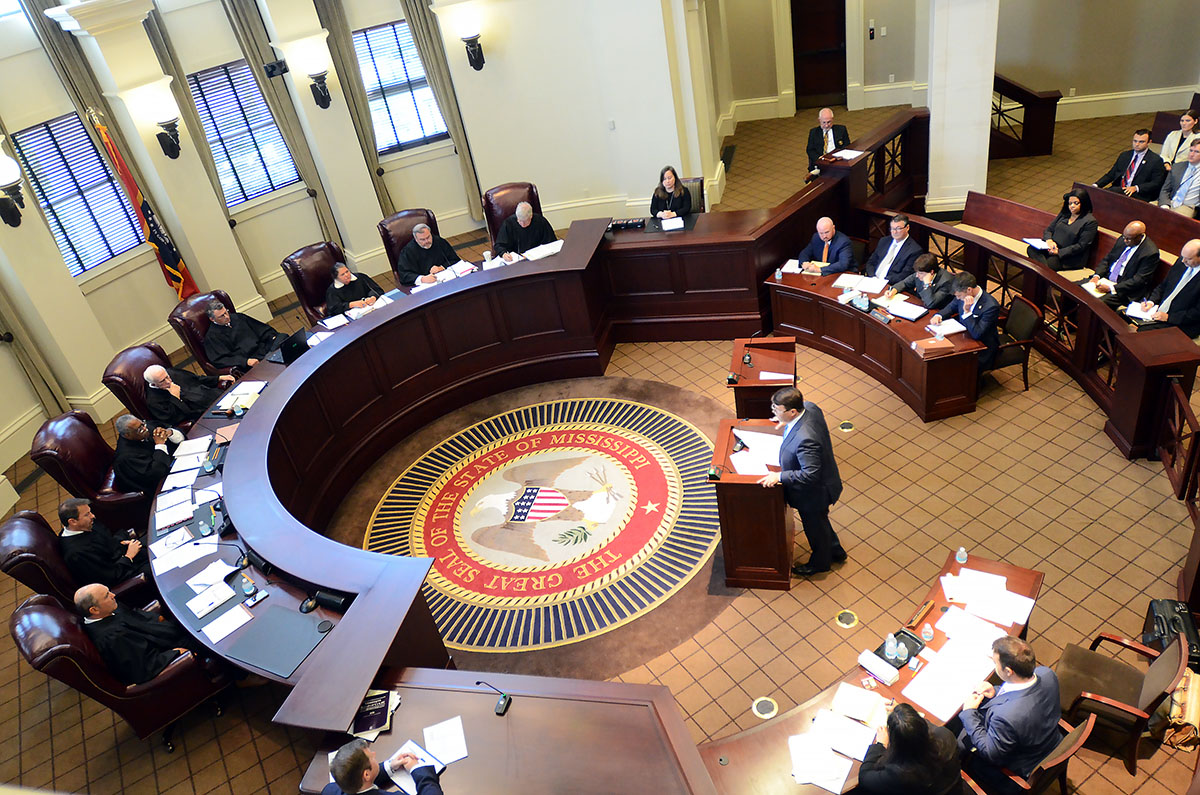OXFORD — Mississippi lawmakers weaken the power of Black voters by drawing state Supreme Court districts that make it difficult for them to elect a justice, an attorney representing several citizens and public officials from the Delta told a federal judge Monday.
But during opening arguments of a redistricting trial, an attorney representing state officials told U.S. District Judge Sharion Aycock in Oxford that Black citizens have repeatedly selected their preferred candidates to the state’s highest court.
Mississippi law establishes three distinct Supreme Court districts, commonly referred to as the Northern, Central and Southern districts. Voters elect three judges from each of these districts to make up the nine-member court. These districts have not been redrawn since 1987.
The main district at issue in the case is the Central District, which comprises many parts of the majority-Black Delta and the majority-Black Jackson metro area. Currently, two white justices, Kenny Griffis and James Kitchens, and one Black justice, Leslie King, represent the district.
The lawsuit was filed in April 2022 by the American Civil Liberties Union, the ACLU of Mississippi, the Southern Poverty Law Center and private law firms on behalf of a group of Black Mississippians including state Sen. Derrick Simmons, D-Greenville, and Ty Pinkins, the Democratic nominee for the U.S. Senate.
Ari Savitzky is an attorney for the plaintiffs. He told Aycock that expert testimony throughout the trial will show that Black candidates face steep odds getting elected to the court. He believes a new Black-majority district could be drawn to remedy that hurdle.
“This is an important case, your honor,” Savitzky said. “It matters tremendously for Black voters, and the state of Mississippi. It matters to the future of this state where the next generation of lawyers and leaders will be able to see themselves in the highest offices and whether they’ll have a path to get there.”
All four Black Mississippians who have served on the Supreme Court were first appointed to the post by governors and then later won election to the post as incumbents. All four have represented the Central District.
In 2020, Court of Appeals Judge Latrice Westbrooks attempted to become the first Black Mississippi to be elected to the Supreme Court before first being appointed by a governor. She lost a close election to Griffis, who was running for the post for the first time after being appointed to a vacant slot on the court by then-Gov. Phil Bryant.
The three Supreme Court districts also are used to elect the three-member Public Service and Transportation commissions.
Special Assistant Attorney General Rex Shannon III is an attorney representing the state officials. He argued that the plaintiffs’ case is weakened since voters in the Central District elected Willie Simmons to the Transportation Commission and DeKeither Stamps to the Public Service Commission. Both officials are Black.
“Plaintiffs first have to prove that the Central District lines abridge their right to vote,” Shannon said. “None of the plaintiffs allege they’re being denied a right to vote.”
Demographers, political candidates and political scientists are expected to testify at the non-jury trial, which is expected to last around 10 days. It’s unclear when Judge Aycock would issue a final ruling. After her ruling, an aggrieved party could appeal to the New Orleans-based U.S. 5th Circuit Court of Appeals.

